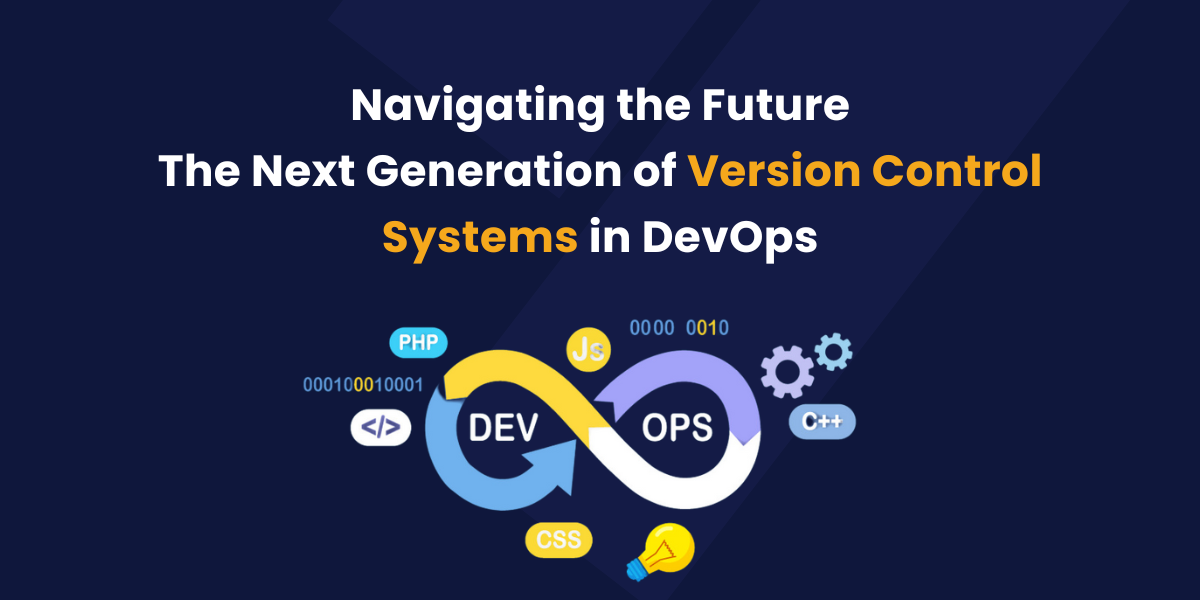Introduction
Version control systems (VCS) have become indispensable tools in managing changes to source code, programs, and documents. As software and data continue to grow in importance, the demand for agile, scalable, and high-performance version control systems is on the rise. This article explores the evolving landscape of VCS, focusing on how platforms like GitHub are adapting to meet the demands of modern development practices and DevOps.
Demand for version control systems
The Growing Importance of VCS
Version control systems are essential for tracking changes to source code, enabling development teams to manage these changes effectively. With the increasing demand for software, including emerging areas like infrastructure as code and low-code generated code, the demand for VCS is also growing.
Christopher Condo, a principal analyst at Forrester Research, emphasizes the direct impact of software demand on the need for version control. He notes that as software demand increases, so does the demand for robust version control systems.
Market Growth and Trends
According to a report by Acumen Research and Consulting, the VCS market is expected to grow at a compound annual growth rate (CAGR) of 12%, reaching $2.68 billion by 2030. This growth is driven by the adoption of agile development methodologies and the increasing importance of collaboration and code management.
Evolution of Version Control
Jim Mercer, Program Vice President at International Data Corp., highlights the evolution of version control from developer-centric systems to encompass broader areas like infrastructure as code, security as code, and networking as code. This evolution has paved the way for GitOps, a development and deployment methodology that leverages Git for managing application infrastructure and configurations as code.
Essential features of a VCS
Scalability
As organizations grow and development initiatives expand, scalability becomes crucial. A VCS should be capable of managing code across various domains and platforms, ensuring seamless collaboration across the organization.
Performance
Performance is another key consideration. A high-performing VCS ensures smooth operations, regardless of the workload or the size of the organization.
Branching and Merging
Branching capabilities allow developers to work on new features without disrupting the main codebase. The ability to merge branches back into the main codebase is also essential for maintaining code integrity.
Collaboration
Modern VCS should facilitate collaboration among distributed teams, enabling them to work efficiently on projects regardless of their geographical locations.
Extensibility via APIs
Secure APIs allow integration with other tools and systems, enabling automation of testing, deployment, and release processes, ultimately supporting continuous delivery.
Data Integrity and History
A reliable VCS should provide robust data integrity features, allowing users to roll back or forward as needed and maintain a complete history of code changes.
Git and DevOps: A closer look
The Dominance of Git
Git has emerged as the most popular version control system, with platforms like GitHub, GitLab, and Bitbucket leading the way. Mercer notes that the dominance of Git has led other version control systems to create bridges or integrations with Git.
DevOps Integration
GitHub, GitLab, and Bitbucket have evolved into full-fledged DevOps platforms, offering features that go beyond traditional version control. These platforms now support build automation, project management, documentation, testing, and deployment, providing a comprehensive environment for developers.
Generative AI in VCS
AI-powered Assistants
Platforms like GitHub Copilot are leveraging generative AI to assist developers with coding suggestions, creating commit messages, and handling branching and merging tasks. Condo emphasizes the potential of AI-powered assistants in simplifying complex tasks and improving developer productivity.
Concerns and Safeguards
While AI-powered tools offer numerous benefits, organizations must consider potential risks, such as intellectual property (IP) concerns. Condo advises organizations with sensitive algorithms to implement safeguards to protect their IP from being used as training data.
The rise of cloud-based VCS
Benefits of Cloud-based VCS
Cloud-based VCS offer real-time collaboration, accessibility from anywhere, and lower upfront costs compared to on-premises systems. Platforms like GitHub and GitLab provide Software-as-a-Service (SaaS) solutions, making it easier for distributed teams to collaborate effectively.
On-Premises vs. Cloud-based
While cloud-based solutions offer numerous advantages, organizations opting for on-premises VCS must ensure they have the necessary skills and resources to operate a secure and efficient system. Condo highlights the importance of maintaining system integrity and keeping pace with evolving technologies.
A comparison of popular VCS
Apache Subversion (SVN)
SVN is an open-source versioning and revision control system that allows developers to maintain historical versions of files, including source code, web pages, and documentation.
Bitbucket
Owned by Atlassian, Bitbucket is a Git-based source code repository hosting service that offers both commercial and free plans, focusing on code hosting and code reviews.
Git
Git is a free, open-source DevOps tool widely used for source code management, capable of handling projects of all sizes and facilitating collaboration among developers.
GitHub
A subsidiary of Microsoft, GitHub provides distributed version control using Git, along with access control, bug tracking, task management, and a broad set of partner integrations.
GitLab
An open-source repository manager based on Git, GitLab offers collaboration and version control features, allowing teams to manage projects, track issues, and review code.
Mercurial
Mercurial is a free, distributed source control management tool designed for platform independence, capable of handling projects of any size.
Perforce
Perforce offers Helix Core, a proprietary version control platform that supports Git integration and tracks changes to source code, digital assets, and large binary files.
Team Foundation Version Control (TFVC)
TFVC is a centralized version control system from Microsoft, offering granular permissions and file-level access restrictions.
Conclusion
Version control systems continue to evolve, adapting to the changing needs of modern development practices and DevOps. With the increasing demand for agile, scalable, and high-performance solutions, platforms like GitHub, GitLab, and Bitbucket are leading the way in innovation. As organizations continue to embrace cloud-based solutions and AI-powered tools, it is crucial to prioritize data integrity, collaboration, and security to ensure the success of development initiatives.

